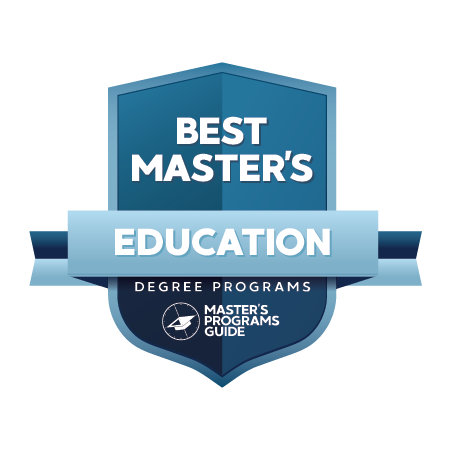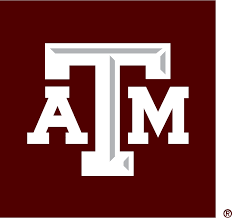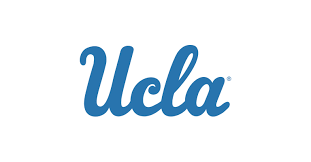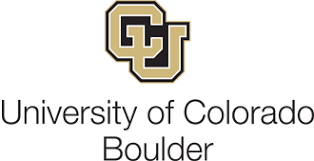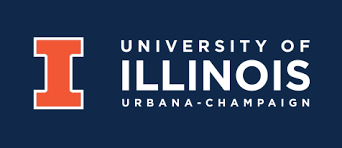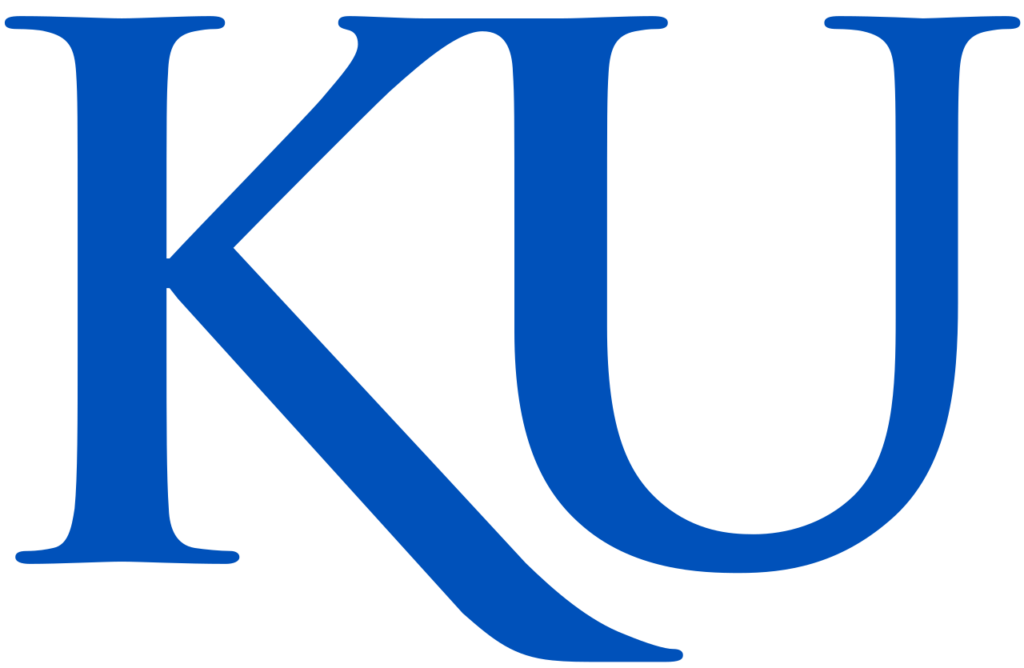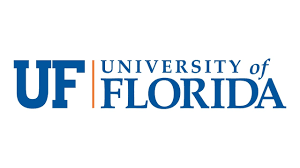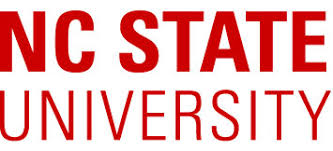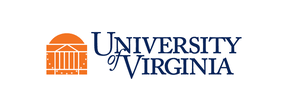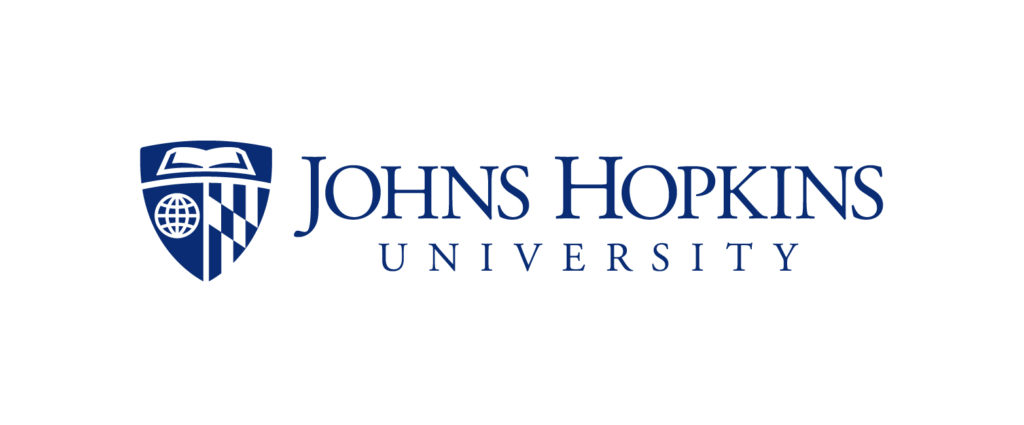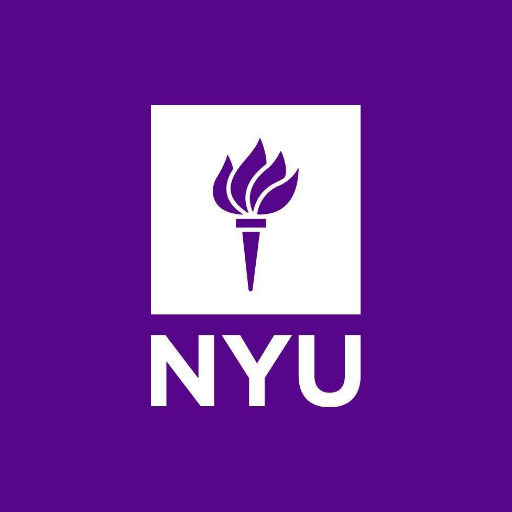Ready to find your ideal master's program?
www.mastersprogramsguide.com is an advertising-supported site. Featured or trusted partner programs and all school search, finder, or match results are for schools that compensate us. This compensation does not influence our school rankings, resource guides, or other editorially-independent information published on this site.
Thinking of earning your Master of Education degree? That’s a smart choice.
Keep reading to learn more about why earning one of the best master degrees in education might be right for you!
Why Pursue the Best Education Masters Programs?
It can help pave the path for a raise or promotion in your current job. Or it can serve as a launchpad for a new career. There are dozens of areas to specialize in when you choose a masters in education. The best one will depend on your exact goals and background.
Many involve classroom teaching methods. Others focus on:
- administration
- counseling
- curriculum
- diversity and inclusion
- student affairs and other educational leadership roles
Other trends include an increased focus on early childhood development. This is done in order to set students up for future success. These programs work to address problems before they develop. There are many degree programs geared toward working with special education students, too.
There’s also a rise in demand for qualified teachers in science, technology, engineering, and mathematics (STEM) fields.
Unlike many master’s degree programs, a master’s in an education field requires more than mere coursework.
For example, you may also need to pursue a specific certificate or licensure or an internship and fieldwork. There are differences in how long it might take to finish your degree. Some M.Ed. programs only take a year. Others can take two (or more if attending part-time).
According to the National Center for Education Statistics, the United States spent ~$800 billion on public K-8 schools and ~$13,847 per child in 2019. This is far more than the global average. And it’s important!
Education is a huge field. It impacts almost every child and every town in the country. There are over 130,000 K-12 schools, ~60 million students (not counting homeschools students), 3.2 million full time teachers, and 90,410 public school principals.
Masters of Education Organizations
It’s no surprise there are dozens of organizations devoted to the field. Two of the biggest are the National Academy of Education and the American Educational Research Association. Others include:
- American Alliance for Health, Physical Education, Recreation and Dance
- American Association of School Administrators
- Association for Childhood Education International
- Association for Educational Communications and Technology
- American Federation of Teachers
- American School Counselor Association
- Council for Exceptional Children
- Council for School Networking
- National Association for the Education of Young Children
- National Council of Teachers of Mathematics
- National Education Association
- National School Boards Association
- National Science Teachers Association
ADMISSION REQUIREMENTS FOR MASTER’S IN EDUCATION PROGRAMS
Working in the education sector can be one of the most impactful careers. Your job involves preparing students for their futures. There are dozens of roles to fill. But one thing they all have in common is the high degree of responsibility expected of candidates.
Education professionals deal with youth and young adults. They’re held to a higher standard than workers in other fields. Keep that in mind as you consider potential degree programs and their admission requirements.
See Also: Best & Cheapest Online Master’s in Education
Any college program is tough to break into. Grad programs are the most selective. A master’s in education can be difficult to get into. That’s even more true if you are applying to be a K-12 teacher. Or if you want to work with special needs children or other vulnerable populations. Be objective as you assess your own background, abilities, and goals. This will help you find the best master’s in education program for you.
An outstanding grade point average is a great start when it comes to fulfilling admission requirements. But it’s just enough to get you in the door. To increase your chances of being accepted, you must read through any given program’s website. Use a fine-toothed comb to pick out all the admission requirements. Take plenty of notes. Admission requirements can get complicated fast!
Don’t get discouraged. Education is one of the best fields for graduate students to consider. It has an excellent growth rate and since many accredited online programs can be completed in as little as one year, there’s no reason to wait.
See Also: Top 10 Most Affordable Online Master’s in Secondary Education
Specialization Options for Masters of Education Programs
A Master’s in Education (M.Ed. or Ed.M) can take many forms. This includes:
- a Master of Arts in education (M.A.Ed. or M.A.E)
- a Master of Science in education (M.S.Ed. or M.S.E.)
- a Master’s in Teaching (MAT)
Each of these may be offered with a number of specializations that go beyond the bachelor’s degree. That means no two are alike and each. They will have different degree completion requirements. That includes the number of credit hours. They will have different admission requirements, too.
Some common specializations include:
- curriculum and instruction
- teaching
- counseling
- higher education
- foreign languages
- academic enrichment
- gifted education
- student affairs
- secondary education
- elementary education
- postsecondary education and adult education
- educational psychology
- special education
- education policy
- educational research
- arts
Educational programs tend to be keen on recruiting a diverse candidate pool. It is important to relate how your own background and prior work have prepared you for success. Supply a resume, statement of purpose, and three letters of recommendation. The three letters of recommendation should come from other teachers or administrators when possible.
Together, these materials will show that your values and intentions are in-synch with those of the graduate school. The personal statement should be related to teaching.
Before you get started on those applications, let’s talk about how to pay for your degree!
See Also: Affordable Online Master of Education Programs
WHAT ABOUT FINANCIAL AID & SCHOLARSHIPS?
Financial aid is one of the biggest barriers faced by prospective students. But the return on investment is what motivates students to put in the money and effort to earn a degree. Before you apply for a loan, it’s worthwhile to check out federal financial aid options.
Many prospective students overlook the Fulbright Program. This a government-funded cultural exchange program. It features graduate degree grant opportunities. Get your application in early!
Federal Student Aid
Federal student aid options exist, too. These include TEACH Grants. These are for those interested in teaching high need subjects. Examples include bilingual education, mathematics, reading, science, and special education. Prospective students need a 3.25 cumulative GPA or must score well on admissions exams.
Grads accepting this grant will commit to teaching at a low-income school for four years. Otherwise, this higher education award is converted into a loan.
Loans
Loans are a quick and painless method of paying for school. The trick is paying off the debt after graduation. Federal loans aren’t the only game in town. There are a few advantages to taking one versus a private bank loan. Interest rates tend to be lower. These awards offer more flexibility in terms of repayment after completing the graduate programs, too.
To apply, you must fill out a Free Application for Federal Student Aid (FAFSA). From there, they tabulate how much you’re able to borrow based on your tuition.
Other Financial Aid Opportunities
Federal options are only the beginning. Grad students can find state and local scholarships. There’s also no shortage of professional organizations and alumni associations who can help. Most colleges have their own in-house scholarships, teaching assistantships, and paid research positions, too.
Once you’ve found the best master of education programs to apply to, don’t delay. Get your materials together and apply for aid.
HOW MUCH CAN I MAKE WITH A MASTER’S DEGREE IN EDUCATION?
There are many different career paths for those with a Master’s in Education. It’s hard to pin down precise salary ranges.
One reason people working in education decide to get a master’s in education is that they love their jobs. But want to earn more money. A whopping 94% of public school teachers apparently pay out of their own pocket each year for classroom supplies!
The Bureau of Labor Statistics is an incredible resource for seeing potential earnings. However, it doesn’t break down pay according to degrees held.
The national median wage for high school teachers was $61,820 in 2021. The top 10% making as much as $100,310 or more.
Vocational and adult education teachers see wages comparable to the K-12 teachers. The highest paying subjects relate to business, politics, architectural, or engineering fields.
University and college professors make $79,640 and higher. Many fields require a Ph.D. to become a professor, but not all do.
In short, the best masters of education programs can prepare you for lucrative, well-paying careers.
WHAT ARE THE 20 BEST MASTERS OF EDUCATION PROGRAMS?
We know that you have educational goals that you’re itching to pursue. You may not know where to start. The editors of Master’s Programs Guide utilize a unique ranking methodology. It is based on the following three aspects:
40% Potential Salary After Graduation: Average mid-career salary of school alumni
30% Institutional Accreditation: Regional and National Accreditation for the 2019-2020 school year
30% Overall Degree Affordability: Average cost of undergraduate and graduate tuition per school
At Master’s Programs Guide, we strive to do our best to guide you and your family toward a fruitful academic career. The pursuit of knowledge is a noble one. We want to help you reach your goals.
Check out our ranking of the 20 best masters in education programs!
#1. Texas A&M University
Master of Education in Curriculum and Instruction
You will find one of the best education programs at Texas A&M.
The College of Education & Human Development at Texas A&M University (TAMU) is in College Station, Texas. This school is home to the Teaching, Learning, and Culture (TLAC) department. It offers a flexible Master of Education in Curriculum and Instruction. It can be taken either online or on-campus. Both versions are non-thesis graduate programs. They take 36-credit hours. The on-campus option can also be done as a Master of Science. The master of science in education has a thesis component.
The online degree option comes with a generalist emphasis. Core classes include:
- Cultural Foundations of Education
- Analysis of Teaching Behavior
- Reflective Inquiry
- Trends in Curriculum and Instruction
- Curriculum Development
The online program features a variety of content delivery methods. These include eCampus, video lectures, group projects, and online chat. Program outcomes cover four main areas:
- Academic learning
- Social climate and emotional well-being
- School improvement
- Family and community partnerships
TAMU recommends its M.Ed. in curriculum and instruction program for students with undergraduate backgrounds in certain areas. These include:
- agricultural leadership
- communication
- curriculum and instruction
- psychology
- technology
- special education
You can participate in the Texas A&M University Education Research Center’s work related to school governance and reform. There are also routine education career fairs. On-campus students enjoy access to over 1,000+ organizations.
Texas A&M University ranks No. 32 on U.S. News & World Report’s Best Education Schools for 2020. This was for Best Online Master’s in Curriculum and Instruction Programs.
To Apply:
Students have up to seven years to finish the program. They can apply to transfer up to 12 credit hours. Applicants should submit:
- an essay specific to the format of their degree program (i.e. on-campus, online)
- three letters of recommendation
- a department data sheet
- official transcripts
GRE exam scores aren’t necessary. TAMU suggests a minimum undergraduate GPA of at least 2.75. International students should also send in their TOEFL or IELTS scores.
#2. University of California, Los Angeles
Master of Education
You can find another one of the top masters in education programs at the University of California Los Angeles. The University of California Los Angeles is often referred to as UCLA. It is renowned at a global level for its high academic standards, research activity, creative programs, and vibrant location.
Located in Los Angeles CA, the school offers several graduate programs related to the field of education. Students selecting the non-thesis Master of Education professional degree option can pick an area of study. Examples include:
- student affairs
- teacher education
- Principal Leadership Institute preliminary administrative credential
The student affairs path is a year-long cohort program for those new to the field. This option teams UCLA’s Education Department with its Division of Student Affairs to offer in-depth, practical education on social justice. You will also learn about transformative practice, and rigorous scholarship. It features a paid internship to enhance hands-on learning.
The two-year Teacher Education Program (TEP) is for educators planning to work in urban districts. This path also features a curriculum emphasizing social justice.
It has a year-long teaching residency. There are choices to focus on:
- elementary education
- mathematics
- science
- English
- social studies
Graduates can also obtain a California teaching credential.
The third master’s of education path is through UCLA’s Principal Leadership Institute. This 14-month course of study is built around California Administrative Professional Expectations. It is made to prepare leaders for critical roles within urban educational settings. Both faculty and student body are diverse. Graduates will possess the necessary coursework for California Tier 1 Administrative Credentialing.
The curriculum between these three M.Ed. options will depend on the study emphasis. All degrees include at least nine graduate courses. Five are in professional education. There is a requirement for a field experience equal to one class. This may involve K-12 classroom participation. Those taking the Teaching Education option must conduct teaching observations. They must perform student teaching if they are seeking a state credential.
UCLA’s Master of Education programs incorporate a final exam or capstone project instead of a thesis. Students in the student affairs emphasis only need to do a comprehensive exam. Those in teacher education do an individual inquiry project. Students taking the administrative credential route will complete a capstone portfolio. M.Ed. degrees take between one to two years. This depends on the specialization area. You can take nine quarters to finish all degree requirements.
To Apply:
Out of ~856 recent program applicants, UCLA admitted ~375, or 44%. Applicants should submit at least three letters of recommendation, a resume, and a statement of purpose. GRE scores aren’t required for the teacher education route. Interested students should be qualified in the subject they desire to teach. They must also have a suitable background with children.
#3. University of Colorado Boulder
Master of Arts in Education (Multiple Options)
Another one of the best master of education programs can be found at the University of Colorado Boulder.
The University of Colorado Boulder is a public university nestled on 600 beautiful acres. It is set against the backdrop of the Rocky Mountains. Its laudable agenda is to increase accessibility in higher education. This is in order to open up new opportunities for students from all walks of life. One major area it wants to have an impact on is education. That’s why its School of Education offers an assortment of graduate degree programs. This includes the Master of Arts in:
- Educational foundations, policy, and practice
- Higher education
- Educational equity and cultural diversity
- Learning sciences and human development
- Literacy studies
- STEM education
- Curriculum & instruction
- MA+ teacher licensure (for Colorado licensure only)
Programs range from 30 to 36 credit hours. For the licensure option, you must complete 800+ hours of student teaching practicum. You will be scheduled for a licensure exam (PRAXIS II).
The curriculum for each Master of Arts path varies. Sample classes for the MA+ teaching licensure option include:
- Advanced Child Growth and Educational Development
- Anthropology of Education
- Curriculum Theories
- Gender Issues in Education
- Issues in School Change and Reform
- Psychological Foundations of Education
- Sociology in Education
- Teaching for Understanding and Equity
The campus features plenty of activities to keep students busy. These includes the Center for Student Involvement and Recreation Center. There are also supportive offices like:
- Career Services
- International Student Services
- Veteran Services
- Student Affairs
Graduates of the CU Boulder’s graduate educational programs reported 100% job attainment. That was within the first six months after leaving CU Boulder.
To Apply:
Admissions requirements include unofficial transcripts, a personal statement, and three letters of recommendation. International students should also submit TOEFL scores. The school considers multiple factors when assessing packages. It encourages students from underrepresented groups to apply. U.S. News & World Report lists the University of Colorado Boulder as No. 41 in Best Education graduate schools.
#4. University of Illinois at Urbana-Champaign
Master of Education (Multiple Options)
You’ll find another one of the best master’s degree in education options here in Illinois. The university’s College of Education features 23 flexible options to choose from. Many of these can be completed as either a:
- Master of Education
- Master of Science
- Master of Arts
Sample degree options include:
- Bilingual / bi-cultural
- Curriculum research, early childhood education, aesthetics & teacher education
- Digital environments for learning, teaching, & agency
- Early childhood education
- Educational administration and leadership
- Higher education
- Infancy & early childhood special education
- Learning & behavior specialist
- Mathematics, science, & engineering education
- Quantitative and qualitative methodology, measurement, and evaluation (QUERIES)
- Secondary education plus teacher licensure
Degree options fall broadly into one of four categories:
- curriculum & instruction
- educational psychology
- special education
- education policy, organization & leadership
Most programs can be completed on-campus. Several can also be done off-campus in Chicagoland or online. Off-campus/online programs are created to train working students to advance their careers.
The school features unique program advice depending on which area students are currently working in. These include:
- an Illinois educator
- national educator
- international educator
- business professional
- military or GI bill recipient
- Chicago public school teacher
U of Illinois Master of Education students often complete 32 credit hours. You’ll take four credit hours from psychological foundations coursework in education. You’ll take four from philosophical and social foundations coursework in education policy, organization, and leadership.
Master’s degree students have up to five years to complete the degree.
To Apply:
Applicants to the University of Illinois at Urbana-Champaign should possess a 3.0 GPA or higher. This is on the last two years of their bachelor’s degree coursework. They will also submit:
- transcripts
- a resume/CV
- personal statement
- writing sample
- three letters of recommendation
Non-Native English speakers will need to submit proof of English proficiency. This is done via TOEFL or IELTS exams.
#5. University of Kansas
Master of Education (Multiple Options)
You will find the best masters degree for teachers at the University of Kansas. The education master’s degrees at the University of Kansas allow students to focus on developing the precise skills they need to pursue their dream careers. Programs are taught within one of five departments:
- curriculum and teaching
- educational leadership and policy studies
- educational psychology
- health, sport, and exercise sciences
- special education
Students can pursue a 30- to 36-credit hour Master of Arts or Science. Options include:
- Autism spectrum disorders
- Counseling and psychology
- Curriculum & instruction
- Early childhood unified
- Educational leadership
- Educational technology
- Health & physical education
- Higher education administration
- Sport management
- Teaching English to speakers of other languages
Several degrees can be completed online. These include a master’s in secondary special education and transition. There are also options to attend at the main Lawrence campus or Edwards campus. KU makes its online programs simple. There are short 8-weeks classes.
Most programs feature an optional thesis. They can be finished in two years. Master of Science options have higher credit hour and length requirements. These are due to mandatory practicum hours. In some cases, there are field experience components.
KU’s School of Education hosts licensure services. These are devoted to helping students navigate the complicated process for attaining or verifying professional licenses.
The university also features an exceptional Career Services section. It is there to assist with career and degree exploration. They help with finding internship openings and networking with recruiters through job fairs.
To Apply:
University of Kansas’ programs in education are accredited by the Higher Learning Commission of the North Central Association. Admissions requirements vary depending on the degree path. The often include:
- transcripts
- three letters of reference
- a goal statement
- a resume
- evidence of English proficiency (international/non-native English speakers).
#6. University of Florida
Master of Education (Multiple Options)
The University of Florida has some of the best master of arts in teaching programs.
The sun-soaked campus of University of Florida in Gainesville has over a dozen master’s degree options. The bachelor’s degrees and master’s in education are taught by the College of Education. Most options are offered either as a Master of Arts or Master of Education degree. The average complete time of the masters in education programs is just two years. Many are also offered 100% online. A few of the paths to choose from are:
- Alternative certification for teacher education K-6
- Bilingual education
- Counselor education
- Education administration and policy/educational leadership
- Educational technology
- Mathematics education
- Reading and literacy education
- Special education
- Teacher leadership for school improvement
Typical program overviews list full-time or part-time attendance options. There are six to nine credits taken each semester. Class sizes are small. The master’s degree program allows for high levels of personalized attention. Graduate students will complete 36- to 39-credit hours. These master’s in teaching courses include:
- Administration of School Personnel
- Curriculum and Instructional Leadership
- Data-Driven Decision Making
- Educational Leadership: The Individual
- Educational Organization and Administration
- Principalship
- Public School Law
- Supervised Practice in School Admin
UF’s educator prep degrees are accredited by the National Council for Accreditation of Teacher Education. It is ranked No. 23 for Best Education Schools on U.S. News & World Report’s 2021 list of best schools for graduate education.
To Apply:
Each graduate degree option has different admissions requirements. Most applicants should hold a bachelor’s degree. This should be with a minimum GPA of 3.0 on the last 60 credits of bachelor’s degree work. Graduate Records Examination (GRE) scores are required. So is a statement of purpose, three letters of recommendation, and a resume.
#7. North Carolina State University
Master of Education (Multiple Options)
Some of the best teaching masters programs can be found at North Carolina State University. The College of Education at North Carolina State University offers 19 master’s degree paths devoted to the field of education! A quick sample overview includes:
- Adult and continuing professional education
- Clinical mental health counseling
- College counseling and student development
- Community college teaching
- Digital learning and teaching
- Elementary education
- Health professions education
- Higher education administration
- New literacies and global learning
- Science education
- Special education
You can pursue a Master of Arts or Science or a Master of Education. Programs require between 30- to 39-credit hours. It depends on the focus and type of master’s. The teaching program is taught with a low 14:1 student-faculty ratio. Programs allow generous amounts of individualized attention to every student.
NC State never rests on its laurels when it comes to education research. It’s in the top 6% of institutions nationwide for grants. There is ~$90.8M funded for 124 active research projects aimed at transforming teaching and learning. It partners with local high-need schools to produce math teachers. The education degrees receive funding from the National Science Foundation (NSF).
To Apply:
UC State is accredited by the Southern Association of Colleges and Schools Commission on Colleges. Master’s in education options have different admissions criteria depending on the specialty. Most require a resume, unofficial transcripts, a statement of interest outlining goals, three letters of recommendation, and proof of residency. International students must submit TOEFL or IELTS exam scores. GRE scores aren’t often needed but check with the specific program’s site.
#8. University of Virginia
Master of Education
You can apply to some of the best masters programs for teachers at the University of Virginia. The University of Virginia in Charlottesville sprawls across 1,682 acres and includes Academical Village, a World Heritage Site. Its Curry School of Education and Human Development was funded by philanthropist John D. Rockefeller in 1905. It has been at the forefront of teacher preparation for well over a hundred years. Graduate students have 15 options for Master of Education degrees specialties. These include:
- Administration & supervision
- Communication sciences and disorders
- Counselor education
- Curriculum & instruction, with focus on reading education (online), or combined with an MBA
- Ed psych with focus on applied developmental science; research, statistics & evaluation; or social foundations (online)
- Kinesiology with a focus in exercise physiology; pedagogy; or individuals with disabilities
- Student affairs practice in higher education
There are also Master of Teaching or Master of Science options available. UVA’s Curry School immerses students in practical research. This is done via partnerships with scholars and faculty. You will learn how to tackle pressing educational issues in the real world.
Most programs are offered full-time. They can be completed in three semesters. There are also part-time programs. These have an average completion time of 2.5 years. Some, like the M.Ed. in administration & supervision, are strictly part-time. They are made for working professionals. Some degrees require fieldwork or clinical assignments. Many allow optional add-on endorsements. These may extend the timeline for completing all requirements.
To Apply:
Admission to UVA’s master’s program requires proof of the potential for academic achievement. This can be met by submitting writing samples or GRE scores. A statement of purpose showcasing strong writing skills and letters of recommendation are also needed.
#9. Johns Hopkins University
Master of Science in Education
Johns Hopkins’ international reputation speaks for itself. The renowned JHU School of Education has become a leader in its own right. This is despite its relative youth (the school was founded in 2007). Each year it confers roughly 1,000 certificates and graduate degrees. Many of these come from its Master of Science (MS) in education program. This teaching program at Johns Hopkins prepares students for teaching in Baltimore MD and beyond.
Concentrations include:
- Digital age learning and educational technology
- Educational studies: collaboration programs, independent schools, individualized interdisciplinary program, or Urban Teachers option
- Gifted education
- International teaching and global leadership cohort
- Reading
- School administration & supervision
Credit hours range from 33 to 39. This depends on the track chosen. Most tracks feature ample electives to allow for maximum customization. Some tracks, such as the master’s in school administration & supervision, feature an internship component. This prepares students for hands-on work in both secondary education and elementary education settings.
Johns Hopkins is accredited by the Middle States Commission on Higher Education. Its education programs are approved by the Maryland State Department of Education.
To Apply:
Application requirements depend on the selected degree track in the master’s in education. They tend to include official transcripts. You should have a minimum 3.0 GPA on undergraduate work. You will also need to submit an essay, a resume/CV, and two letters of recommendation. Additional requirements may include current employment at a school. You may need prior certified teaching experience. JHU is ranked No. 14 for Best Education Schools on U.S. News & World Report’s 2021 graduate school listing.
#10. New York University
Master of Education (Multiple Options)
If big city life is beckoning, it doesn’t get much bigger than New York City. Here you will find some of the best masters in teaching programs. The private, urban campus of New York University is nestled in Greenwich Village. It is the Big Apple’s mecca for all things arts and culture-related. If you want a master’s in education that will allow you to work in an urban setting in the heart of New York, this is the one.
Through the Steinhardt School of Culture, Education, and Human Development, New York University offers a selection of master’s programs. These are in a variety of educational fields. Broad areas include health, arts, media studies, and education. There are specific paths in:
- Applied statistics for social science research
- Bilingual education, or teaching English to speakers of other languages
- Art + education, dance education, or educational theatre
- Early childhood education, or higher and postsecondary education
- Education and social policy
- Education in English, history, literacy, math, science, language, or social studies
- Environmental conservation education
- Childhood education, international education, or special education
- Music, with a focus in business, music education, or therapy
- Nutrition and dietetics, school counseling, sociology of education, and more
Steinhart offers more specialization opportunities. These are within several of the above offerings. For example, there are specific certification paths, dual certifications, and overseas options.
Most options culminate in a Master of Arts degree. They require an average of mid-30-credit hours. Some of the professional licensure paths going up to 60-credit hours (or points as NYU calls them). Most can be taken either full- or part-time. Final credit hours are dependent on prior educational experience.
With an award-winning alumni network of 78,000+ members around the globe, Steinhardt continues to help graduates after they’ve left. This is done through a variety of benefits.
Benefits include career services, access to events, and other perks. The school ranks No. 4 on U.S. News & World Report’s 2021 list of Best Graduate Schools in Education.
To Apply:
Admission requirements vary depending on the teaching program. They often include a resume, statement of purpose, letters of recommendation, and GRE or MAT scores.
OTHER NOTABLE PROGRAMS
#11. Ohio State University
Location: Columbus, Ohio
Degree: Master’s in Education Programs (M.Ed.)
Average In-State Tuition: $12,598
#12. Indiana University Bloomington
Location: Bloomington, Indiana
Degree: Master of Science in Education (Multiple Options)
Average In-State Tuition: $11,446
#13. San Diego State University
Location: San Diego, California
Degree: Master of Arts (M.A.) or Master of Science (M.S.)
Average In-State Tuition: $9,154
#14. Clemson University
Location: Clemson, South California
Degree: Master of Education in Student Affairs
Average In-State Tuition: $15,558
#15. University of Georgia
Location: Athens, Georgia
Degree: Master’s in Education Programs
Average In-State Tuition: $10,982
#16. University of Minnesota
Location: Duluth, Minnesota
Degree: Master’s in Education Programs (M.Ed.)
Average In-State Tuition: $35,099
#17. University of Maryland
Location: College Park, Maryland
Degree: Master’s in Education Programs (Multiple Options)
Average In-State Tuition: $14,526
#18. Michigan State University
Location: East Lansing, Michigan
Degree: Master’s in Education Programs (Multiple Options)
Average In-State Tuition: $18,132
#19. University of Connecticut
Location: Storrs, Connecticut
Degree: Master’s of Arts in Curriculum and Instruction
Average In-State Tuition: $19,434
#20. University of California, Irvine
Location: Irvine, California
Degree: Master of Arts in Teaching in Elementary and Secondary Education, Master of Arts in Education
Average In-State Tuition: $13,775
IF YOU ENJOYED THAT THEN CHECK OUT OUR ARTICLES ON THE MOST POPULAR MASTER’S DEGREES AND TOP 50 HIGHEST PAYING MASTER’S DEGREE PROGRAMS.

